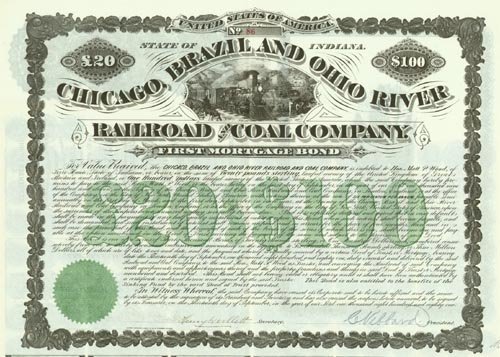
A friend has forwarded a presentation from Patrick Byrne, the Founder and CEO of Overstock.com (and of the rather cool Worldstock.com), on allegations of shenanigans in the way that stocks are traded in the U.S. The presentation takes two parts: Party I and Part II. (They’re both high-tech-but-user-friendly slide shows.) I don’t know that much about stocks (my investing is through mutual funds, since I don’t have the kind of specialized knowledge that would give me the courage to invest in particular stocks), but I pass them on to all the more sophisticated economists, market mavens, and others out there I know.










Great post, Tom! Naked short selling just another name for stock counterfeiting. This is an issue that affects everyone, but there is [literally] a conspiracy of silence.
The economists and public-choice theorists among your readers will know the term “captured regulator.” Sadly, that is what the SEC has become. It is only through a coordinated, grassroots effort that we can stop naked short selling.
I encourage all interested readers to visit the National Coaltion Against Naked Shorting’s website:
http://www.ncans.net/
And for an up-to-date blog by an insider, read the Sanity Check:
http://bobosrevenge.blogspot.com/
~ PC
Also, those interested in knowing what the SEC has to say about Naked Short Selling, go here:
http://www.ncans.net/secfaq.htm
You can’t make this stuff up…
Interesting presentation. Unfortunately, I only had time to watch part 1 and will have to review the rest at a later date. Having worked in the industry I know personally that it is a fact that at times trades do not settle. Possibly due to the fact that I was at a smaller firm I never saw this as a malicious attempt to defraud people. I’ll agree though that it is entirely possible that it is done purposefully to some extent within the industry.
That said, his example of these “IOUs” driving stock prices from $40 down to penny stocks seems a little farfetched. Notice the types of companies he mentions that are most prone to hypothetical attacks: small high tech firms, new pharmaceutical companies, ext. Yes, these firms could blossom into the next Microsoft or Merck. But there is something else they have in common… they are probably not making any money.
And without earning, stock prices are going to fluctuate greatly. There are lots of uncertainties that go into valuing stocks that have high P/E ratio or no earnings at all. What if the new drug doesn’t preform as hoped or gets blocked by the FDA? What if another high tech company creates a product that makes yours useless? Remember stocks are driven by future earnings, and when earnings are unknown the current price can fluctuate greatly. CEOs love to blame traders for the downturns in their stock prices but there are many more plausible factors that can drive a stock from $40 to pennies.
Again, I still need to watch the rest of the presentation but just wanted add that observation…
anyone catch patrick byrne on bloomberg
december 23rd? wow.
http://www.blogmaverick.com/entry/1234000233073446
It seems that Mr. Byrne has a reputation as a certifiable crazy:
http://www.theregister.co.uk/2005/12/29/overstock_stock_dip/
googling him brings back a boatload of similiar results. I wouldn’t put much stock in his theories, but the slideshow was, errr, entertaining, so I have forwarded it to those of my acquaintances enamored of conspiracy theories.
This does not look like a conspiracy theory to me…
http://www.unm.edu/~boni/RPAWP/FailsPaperJun25.pdf
http://www.sec.gov/rules/proposed/s72303/rshapiro122403.htm
http://papers.ssrn.com/sol3/papers.cfm?abstract_id=687282
As L.M. Boyd used to say, “Interesting if true.”
I wasn’t familiar with strategic FTD, but it reminded me of fraud schemes in Federal crop insurance….similar issues there: hard to measure extent of the problem, and the best data are records of individual policy holders that are reasonably not made public.
Byrne does a reasonable job of explaining how strategic FTD would work, and seems to document pretty well that it’s *unknown* whether it’s a big problem or not.
His analysis at the end of SEC’s rulings and statements simply assumed it’s a big problem, and also failed to recognize that Federal regulators indeed do hold companies’ proprietary information, and that there are likely legitimate reasons for not making these data public.
The best thing part is that he provides cites of academic studies — it’ll be interesting to read these and any critical comments from other researchers.
To arrive at Byrne’s conclusion, don’t you have to assume the worst possible actuality for each unknown?
As for investing in mutual funds, bear in mind that for 90% of them, you pay extra to get lower performance. In other words, with most funds, you’d actually do better statistically by just picking stocks at random.
They’re maybe some truth to it, don’t know, but it is useful to know that this individual has been battling short sellers for months know, hence his interest in the subject. This isn’t some public service announcement.
And besides, look at his company’s stock price and financials, there’s a reason everyone is shorting his stock, his business model sucks.